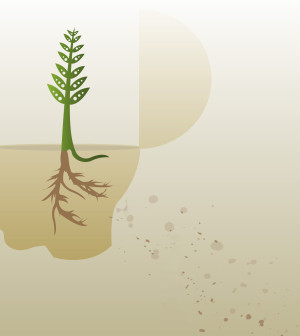- Cancer Takes Tough Toll on Family Finances
- You Might Fare Better If Your Doctor Is Female, Study Finds
- CDC Launches Online ‘Heat Forecaster’ Tool as Another Summer Looms
- Biden Administration Sets Nursing Home Staffing Minimums
- Neosporin Ointment in the Nose Might Be Potent Antibiotic
- Physical Ills Often Plague People With Schizophrenia, Bipolar
- Taking Psilocybin for Depression? Relationship With Therapist Is Key
- Stick to Heimlich Maneuver Not ‘Anti-Choking’ Devices, FDA Says
- Women in the Military at Risk for Low-Weight Babies
- Repeat Blasts Can Damage Soldiers’ Brains, Study Confirms
Could Electrical Brain Stimulation Boost Perseverance?


Electrical stimulation of a specific area of the brain may help boost a person’s ability to get through tough times, according to a tiny new study.
Researchers implanted electrodes in the brains of two people with epilepsy to learn about the source of their seizures. The electrodes were situated in the part of the brain known as the “anterior midcingulate cortex.” This region is believed to be involved in emotions, pain and decision-making.
When an electrical charge was delivered within this region, both patients said they experienced the expectation of an imminent challenge. Not only that, they also felt a determination to conquer the challenge. At the same time, their heart rate increased and they experienced physical sensations in the chest and neck.
The patients did not feel any of these effects when brain regions only 5 millimeters away were electrically stimulated. Nor did patients feel these effects when they were told their brains were being stimulated but they did not receive an electrical charge, according to the study.
The findings were published online Dec. 5 in the journal Neuron.
“That few electrical pulses delivered to a population of brain cells in conscious human individuals give rise to such a high level set of emotions and thoughts we associate with a human virtue such as perseverance tells us that our unique human qualities are anchored dearly in the operation of our brain cells,” study lead author Dr. Josef Parvizi said in a journal news release.
The site of the stimulation in both patients was at the core of a network linking the anterior midcingulate cortex to other brain regions, imaging studies found.
This suggests that variations in the structure and function of this network may be linked with differences in people’s abilities to cope with difficult situations, according to the news release.
“These innate differences might potentially be identified in childhood and be modified by behavioral therapy, medication, or, as suggested here, electrical stimulation,” said Parvizi, who is with the department of neurology and neurological sciences at Stanford University.
More information
The American Academy of Family Physicians offers tips for coping with life’s challenges.
Source: HealthDay
Copyright © 2024 HealthDay. All rights reserved.










